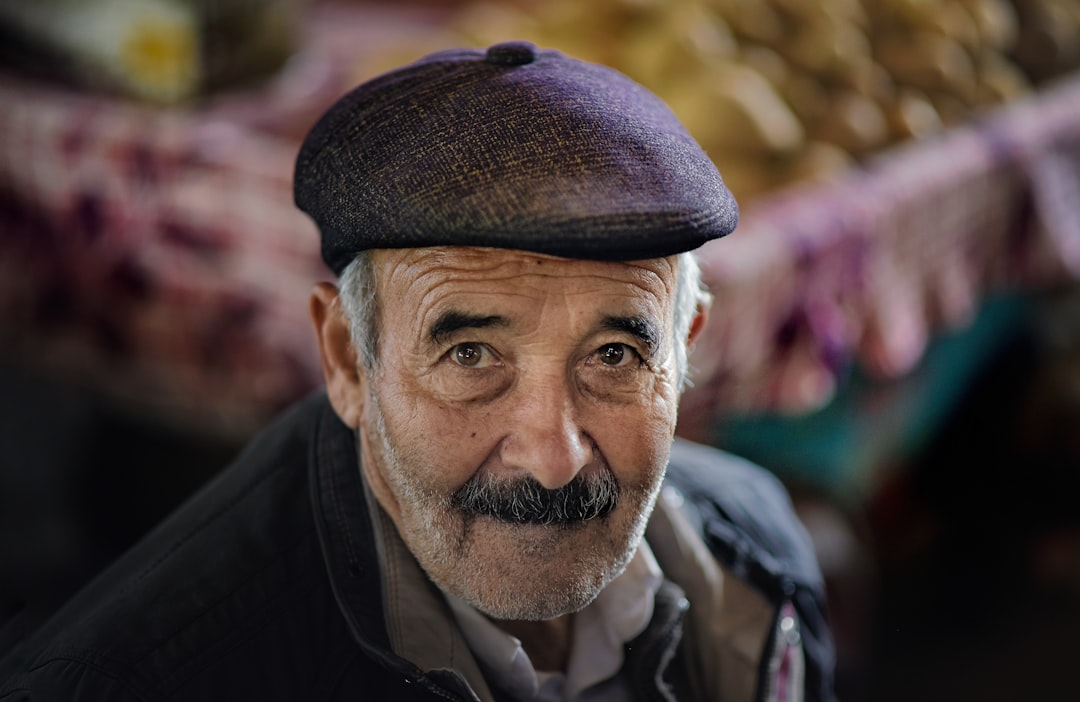The One Question Your Doctor Should Ask
And maybe try asking your family members this Thanksgiving?

I am really enjoying this community and I hope you are too. Thank you for your comments, shares, subscribes and follows. Your engagement encourages me that we are on that right track in changing the conversation around cancer.
In the spirit of conversation (and acknowledgement of the looming holidays that find us gathering with friends and family), I thought I would share the one question I always ask my patients. I have not tested this on my family, but maybe this year I will. 🤔
I knocked on the door of the hospital room. A tentative voice called from the bathroom, “Just a minute.” I entered and stood by the bed, looking impatiently at my phone and thinking of the mound of paperwork waiting for me back on my desk.

A short, elderly man with wiry grey hair emerged from the bathroom. “I’m sorry. I’ve just been sick, and I’m afraid I’ve messed up the whole room,” he said as he shuffled slowly toward the bed.
I put my phone away and peeked around the corner. He was right. The bathroom was a mess.
Donning gloves, I helped him into bed, pulled his blankets up, and pressed the nurse call button. I quickly went over his team’s recommendation that he receive palliative radiation treatments, discussed the process for this to occur and answered a few of his questions. He agreed to come down for a planning session the next day.
As I was leaving, a nursing assistant entered the room. “What’s up, doc?” she called to him as she wiped the anti-bacterial gel on her hands. Later while typing my note, I discovered that he was a renowned classical musician and professor. A quick Google search brought up dozens of YouTube videos. I sat at my desk listening to a concert from several years ago in a large European cathedral. He played passionately, body rocking and eyes closed.

I replayed our interaction as I drove home that evening, chastising myself for not spending more time with him. I thought about his vulnerability and my task-minded approach. In the moment, I really just needed to know the answer to one question: Do you want radiation or not? And, unfortunately, I approached him that way—a woman on a mission.
He had been cooperative, kind, and decisive. He rapidly shifted from the embarrassment of the bathroom situation to a high-level goals-of-care discussion with me. In the car as I contemplated how I could have handled that situation differently, I wondered what his experience was like. I had gotten the information I needed, but had I truly cared for him?
The Patient Dignity Question
“What do I need to know about you as a person to give you the best care possible?”
Dr. Harvey Chochinov introduced the Patient Dignity Question (PDQ) to quantify what dignity in healthcare looked like from the patient perspective. It turns out providing a patient with the feeling of dignity is actually quite simple.
Multiple studies have demonstrated an improved doctor-patient communication when this question is asked in a clinic visit. Dr. Chochinov insists that kindness, humanity and respect must be protected in our time-pressured and increasingly complex health care systems. At a basic level, the human-to-human interactions are still what matter, he argues.
I couldn’t agree more.
A recent study looked at over 1,800 cancer patients in a palliative care clinic and found there were three common categories of responses to the PDQ:
Personal insights, like “I feel in control or at peace with my life.” Some patients revealed they had unfinished business that they wanted to resolve prior to death.
Impaired abilities due to the cancer diagnosis or treatment like pain, forgetfulness, or inability to perform normal daily tasks.
Interactions with others. Some patients expressed worry about being a burden on others or what would happen to children/friends/partners when they were gone.
As I read this study, I thought back to the elderly man and the hospital room. He died a few months after our conversation. I wonder how he would have answered the PDQ. And I also wondered if he felt dignity in how I cared for him.
In a discussion about the PDQ, Dr. Chochinov explains that health care providers “are often the mirror by which patients and their families judge their own status within the system.” In other words, my words and actions reflect important answers to questions posed by fellow humans who seeking my help: Does my life matter? And does anyone care?
In my experience, most people working in and around patients with cancer are drawn to caregiving. The challenge is translating that desire to care into our patients’ lived experiences.
I wonder how you would answer the PDQ and whether you would share that with your doctor.
What does your doctor need to know about you as a person to give you the best care possible?
A version of this essay first appeared in Psychology Today.
On my mind…
‘s Calm Christmas podcast is back with a third season. I found this reflective community during the bleak winter of 2020 when I couldn’t really see anything good let alone calm. Beth’s weekly musings are a balm to my soul. Five-year data on the DIANA-5 study is out. This trial showed no impact on cancer recurrence in breast cancer survivors who adopted a Mediterranean diet. Sigh. Sometimes it FEELS like things should work but they don’t.
If you are an oncologist looking for guidance on starting a survivorship program, I gave a presentation to the Multinational Association of Supportive Care in Cancer last month on my approach. The YouTube link is here.




Thanks for sharing. It all rings so true.
I literally wrote this essay after reading a similar post by Dr. Adam Cifu - and you doctors need to know that many of us chronic needs folks get and appreciate you. https://open.substack.com/pub/jimryser/p/memories-of-favorite-docs-who-helped?r=15g3mk&utm_medium=ios&utm_campaign=post